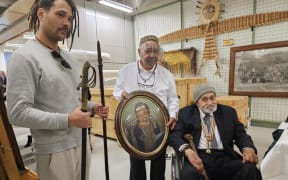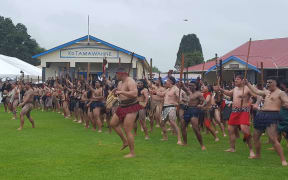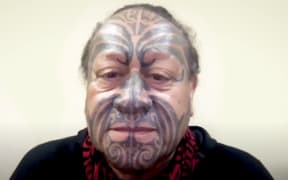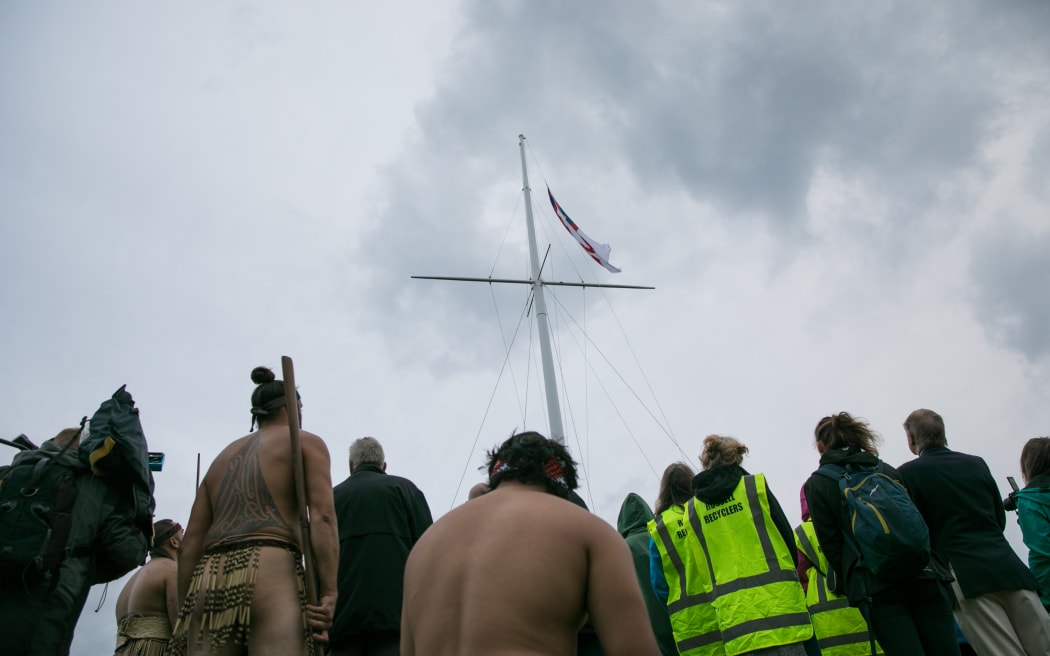
Commemorations of the New Zealand Wars at the site of the Waitangi flagstaff, north of Russell, in 2018. Photo: RNZ / Dan Cook
Ninety percent of teachers are enjoying the new history curriculum and so are more than half of their pupils.
Even so, the Education Review Office said schools struggled in their first year of teaching the Aotearoa New Zealand (ANZ) Histories Curriculum.
In a report published on Thursday, the office said many focused on local histories and they needed more help deciding what to teach.
The curriculum became compulsory for Years 1-10 at the start of 2023 and focused on four main ideas: Māori history as the foundational history of New Zealand, colonisation, the use of power, and relationships and connections between people.
The review office report said all schools were teaching the curriculum by the end of last year, but not to all year levels and not all of the content was being taught.
"The curriculum statements are being interpreted by schools so that they are focusing on local histories rather than national events, and local is sometimes interpreted as only Māori histories. Schools are also teaching less about global contexts."
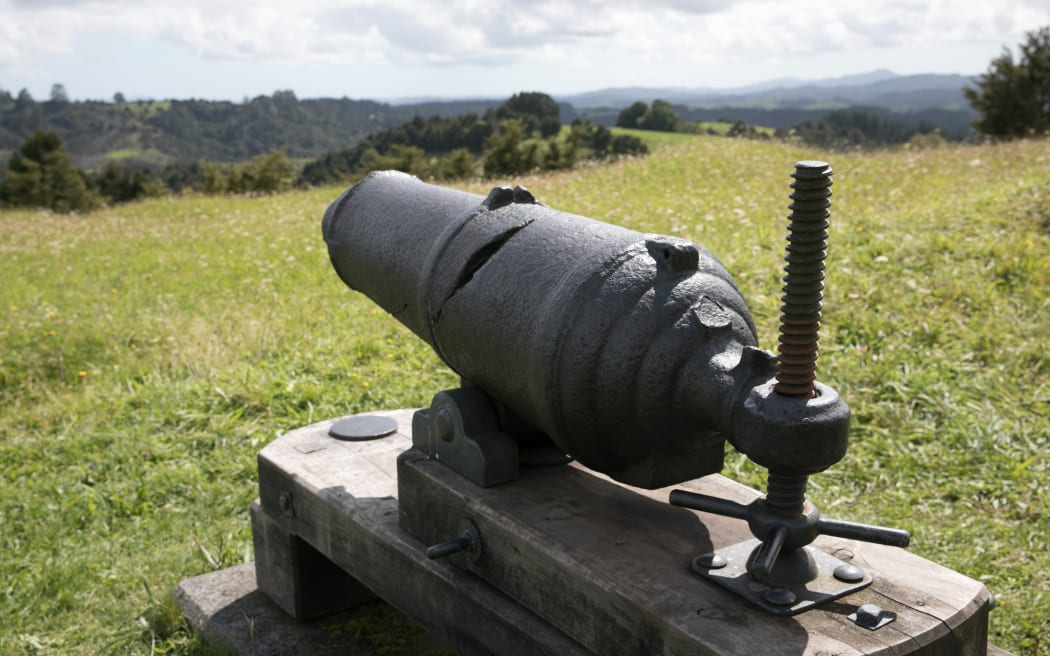
A British cannon at Ruapekapeka, north of Whangārei, where it is said the first major conflict between the Crown and iwi happened after the signing of the Treaty. Photo: RNZ / Dan Cook
The report said schools needed to teach global contexts and events, because students were more than twice as likely to enjoy the subject when they learned about New Zealand's place in the world.
"Students are enjoying ANZ Histories. It has engaged a wide range of students, in particular Māori students. Teachers report positive impacts on student participation, and students (from all backgrounds) report learning in ANZ Histories helps them connect to 'being a New Zealander'."
It said Māori and Pacific students were enjoying the new curriculum more than other students.
"Enjoyment of learning ANZ Histories is not the same for all ethnicities. While almost two-thirds of Pacific students enjoy ANZ Histories (63 percent) and the majority of Māori students are also enjoying it (61 percent), fewer Asian students (55 percent), only half of NZ European students (50 percent), and less than half of MELAA [Middle Eastern, Latin American and African] students (42 percent) enjoy it."
The report said 75 percent of teachers and principals it surveyed were confident about their understanding of the curriculum's content and nine out of 10 teachers enjoyed teaching it.
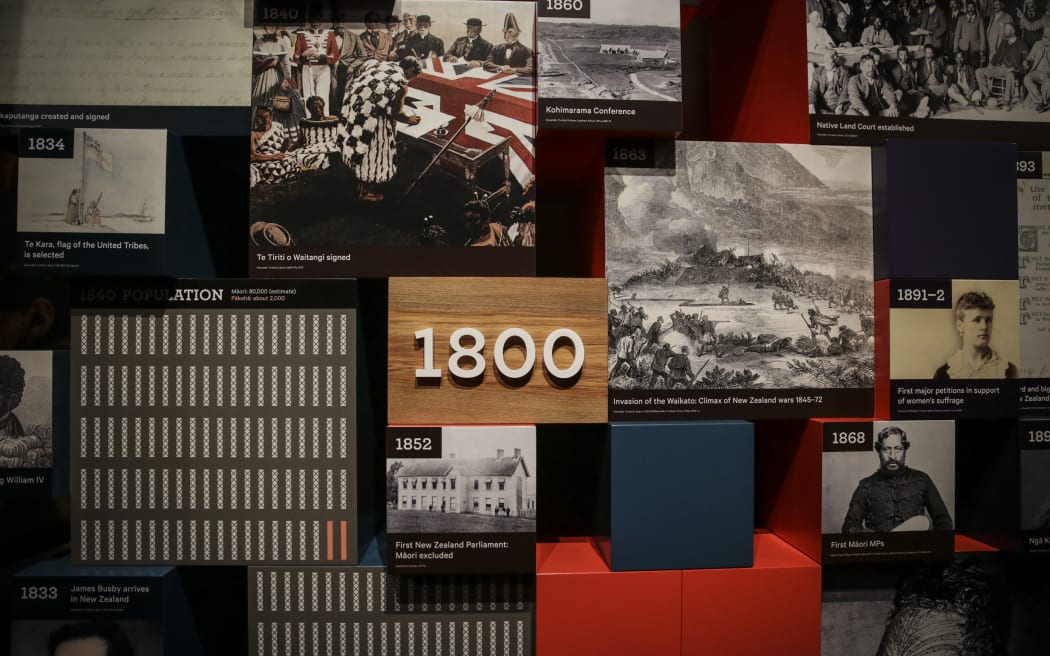
The He Tohu exhibition which features three iconic constitutional documents that shaped Aotearoa New Zealand - Treaty of Waitangi, Declaration of Independence and Women's Suffrage Petition. Photo: RNZ / Rebekah Parsons-King
Teachers ask for more guidance
However, the report also said some teachers were overwhelmed by the scale of the change.
"Teachers describe the challenge, firstly, of growing their local histories knowledge, and then sharing that knowledge with their students," it said.
"Schools find developing a local curriculum challenging. They don't understand what is required, they don't have the skills to develop a curriculum, and it takes a lot of time to access resources."
One teacher told the review office: "Please tell me what to teach, I am so sick and tired of being left to figure it all out for myself."
The review office recommended schools teach about people, places and events their pupils could relate to.
It recommended clearer expectations of what needed to be taught with more off-the-shelf resources for teachers.
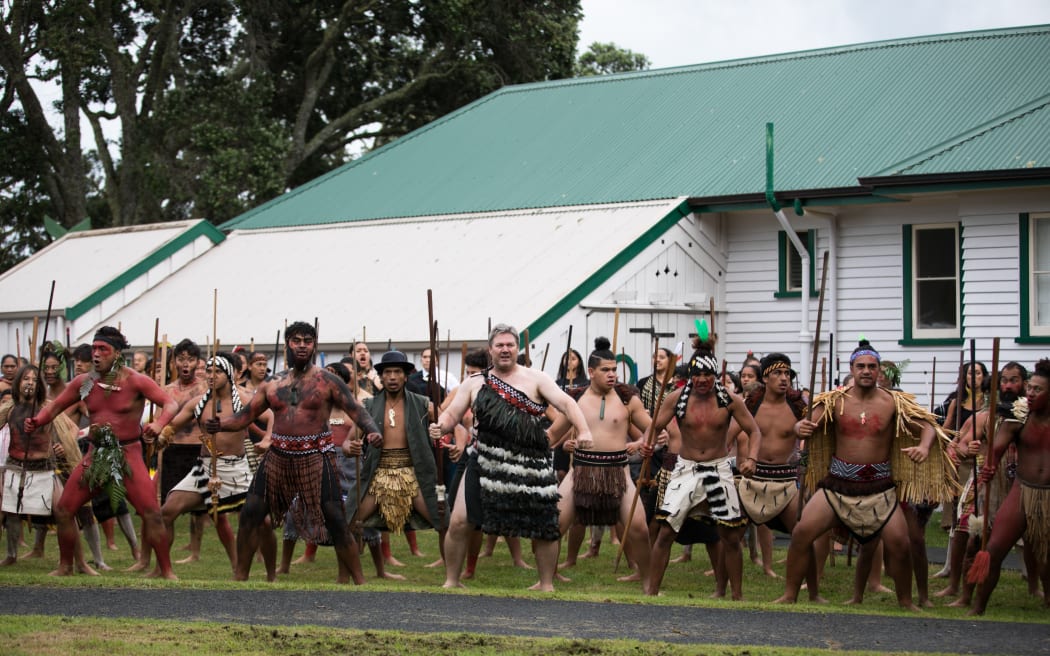
Commemorations of the New Zealand Wars in 2018. Photo: RNZ
It also recommended more help for schools with teaching Māori history, because it was not realistic to expect all schools to engage with local hapū and iwi.
"Half of schools have limited or no engagement with local hapū and iwi on Social Sciences, including ANZ Histories. Some schools are facing challenges due to lack of capacity and capability to engage with hapū and iwi. We also heard from schools that hapū or iwi don't have the capacity to work with all the schools in their area (rohe)," it said.
The report was based on surveys of surveys of 447 school leaders and teachers, 918 students and 1016 parents and whānau as well as visits to 11 schools and interviews in the second half of 2023.
Education Review Office deputy chief executive Ruth Shinoda told Morning Report three-quarters of schools were now teaching it at all levels.
But schools' feedback was that designing their own curriculum was time-consuming.
They were asking for a "more explicit curriculum, more off-the-shelf content and tools then they could get on with the teaching of it, and less of the making of it".
ERO had found in trying to develop their curriculum, schools were often starting with local history and not yet doing enough to teach national events, she said.
"... So only Māori land wars or the suffragette movement, and then particularly are not teaching the link between that and global events."
Listen to RNZ's The Aotearoa History Show here.
Shinoda said students had indicated they were "twice as likely to be learning and enjoying learning about history" if it included learning about New Zealand in the context of world history.
"It's really important to make that connection between the local, the national and our place in the world."
She said less than a third of schools were teaching economic history.
Govt remains committed to restoring balance to curriculum
Education Minister Erica Stanford said the report showed the curriculum needed to be clearer.
She said it also showed history had crowded out other social science subjects like geography.
"I will be reducing the expectation for schools to write curriculum documents themselves and ensuring teachers have more time to focus on what they do best - planning creative and exciting lessons to engage the learners in their classrooms."
Stanford said restoring balance to the histories curriculum was a commitment in the ACT/National coalition agreement.

